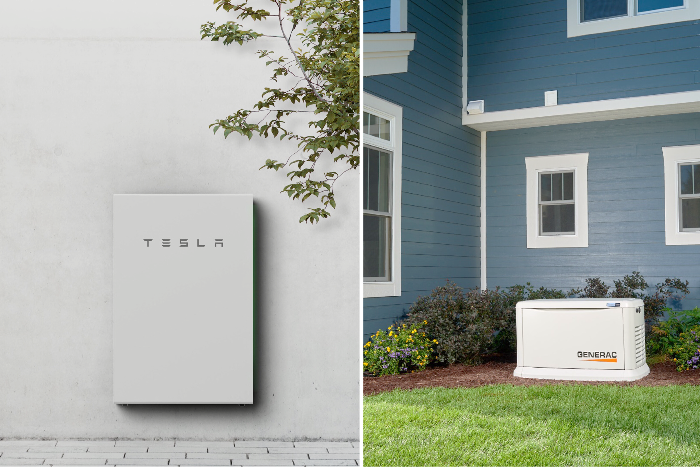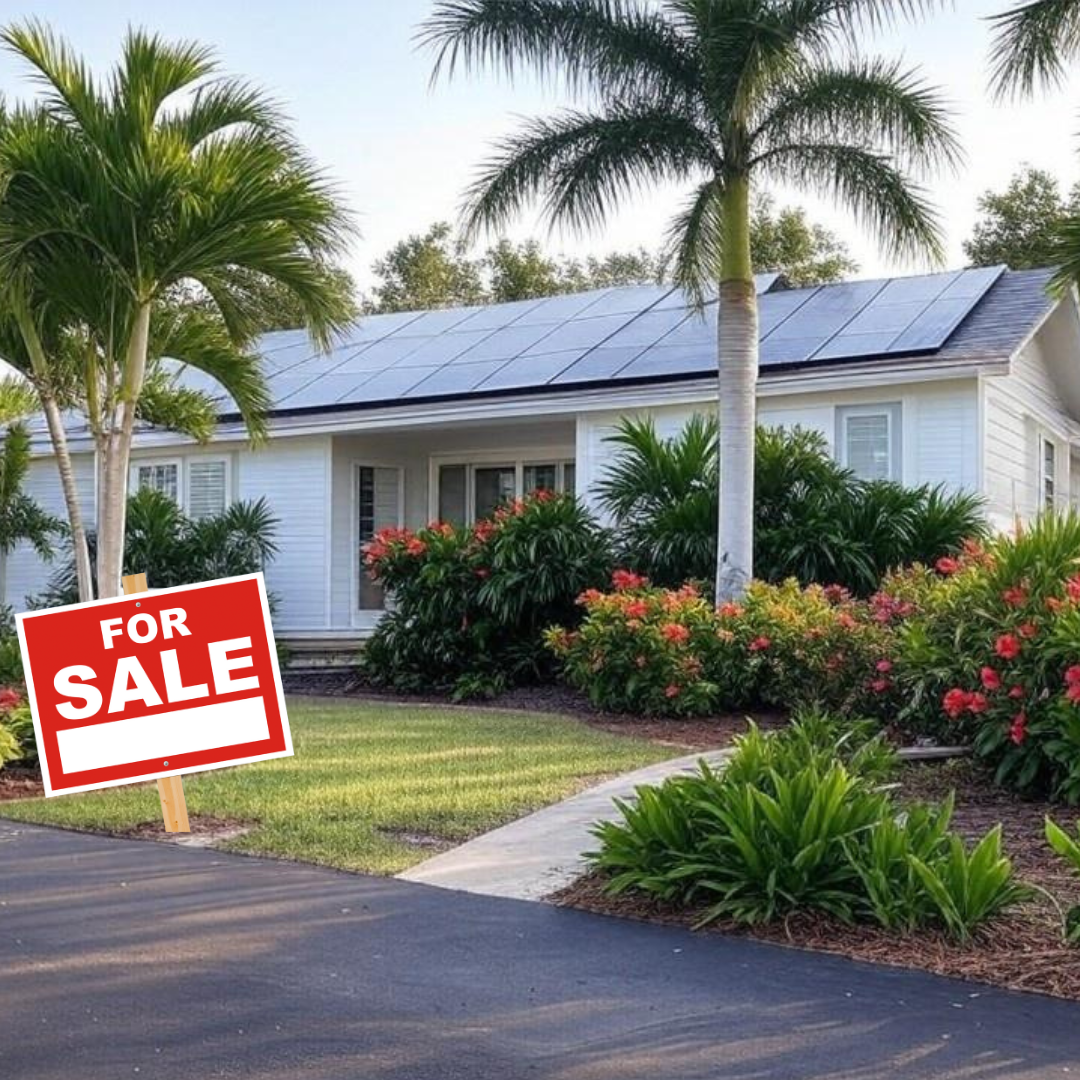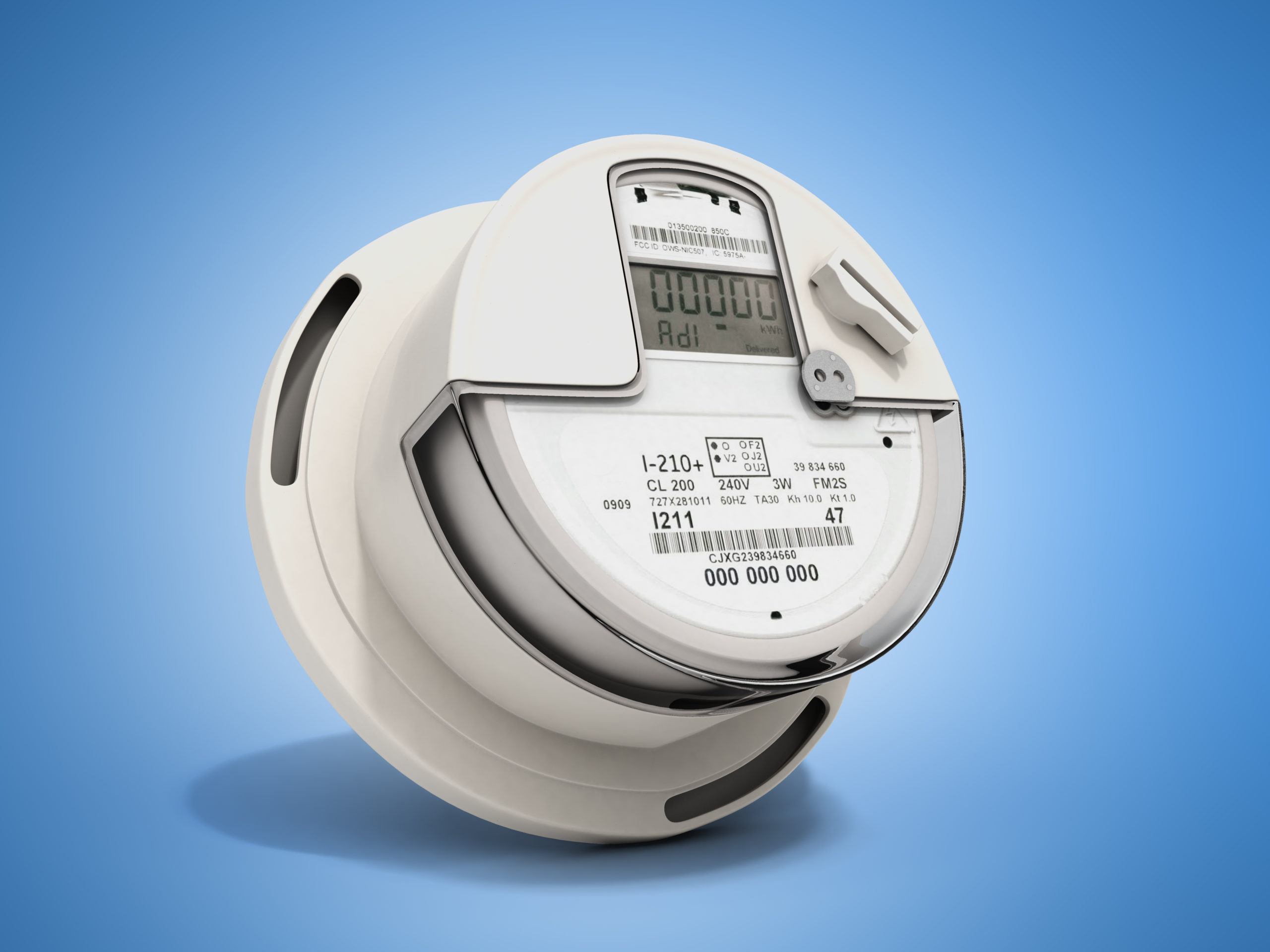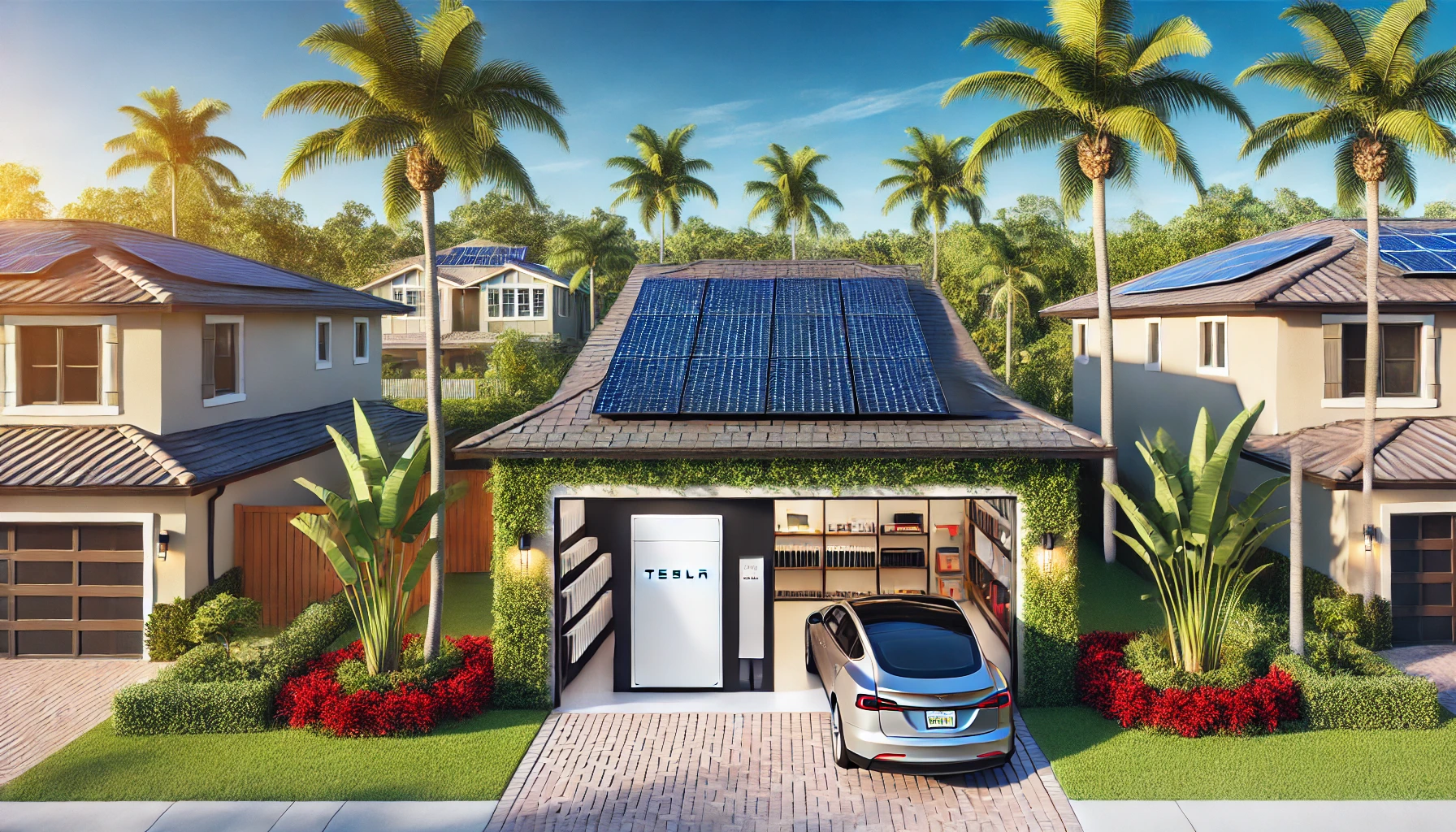Florida homeowners are no strangers to power outages, especially during hurricane season. There are numerous benefits of having whole home power backup.. but is solar storage better than a generator? How much do home batteries and generators cost?
If you are in the market for a home backup power system, you are likely comparing solar batteries to a home standby generator. Right out of the door, there are differences. Keep reading as we compare generators to solar battery storage systems.
The Main Difference
One of the most significant differences between a generator and solar batteries is fueling the generator. What that means is that the generator has a finite role. It will run until it is out of gasoline or propane.
When that happens, you either have to refill it, or everything goes dark. Even if the solar batteries run out of energy during the night, they will recharge the following day when the solar array begins producing power.
So while both sources of energy are finite in terms of the amount of energy they can produce at night, one is sustainable, and the other requires fuel to run.
Cost Differences
In terms of upfront costs, home batteries are generally more expensive. Expect to pay $7,000-$15,000 for solar batteries. The actual price will differ depending on how many batteries your solar system requires to meet the nighttime energy needs of your home.
A home backup battery starts around $6,500 before installation costs; the actual price will differ depending on how many batteries your solar system requires to meet the nighttime energy needs of your home. (Generally, whole home backup requires at least 2 batteries)
Altogether, you can expect to pay close to $15,000 for a solar storage system. The most important thing to know is that a battery backup has no sales tax, and 26% of the total purchase price can be claimed for a federal income tax credit. For example, if 2 Tesla Powerwall’s cost you $20,000, you can claim $5,200 in federal income tax credits.
A whole house generator can run from $3,000 to $12,000, depending on how much electricity you need it to produce. Add the fuel cost into that price, which would be a recurring expense.
Solar Batteries vs. Generator When Off-Grid
You have to rely on either a generator or a battery backup system for nighttime energy supplies in an off-grid situation. Backup generators are often loud and not welcome in a neighborhood setting. In a remote location, they are a different story.
On the contrary, battery storage systems are quiet and more resourceful since they are able store excess energy. That additional energy can take you through the night or power your day during storms or other events that limit the production of a solar array.
Solar Battery Backup vs. Generator in a Grid-tied System
What happens when the local power grid goes down? – Well, then you are technically off-grid. You can supplement energy with a generator or rely on solar batteries. In the Texas Deep Freeze, we saw their electric grid go down and stay down. In that situation, you are faced with the loss of power and a limited supply of fuel. If you had to run a generator, fuel would be a scarce commodity. Battery backup systems give you more options to power your home because they regenerate the following day.
Battery backup power offers the same benefits as conventional generators, just without the hassle, noise, maintenance, or constant need for refueling. Plus, it is better for the environment. The only downfall is that in order to get a solar battery backup, you have to have a solar system. Many homeowners install both home solar and battery backup simultaneously, while others choose to install the battery later on.
Adding solar battery storage is a possibility for every homeowner with solar. There are many storage solutions options, the most popular are: Tesla Powerwall, SunPower SunVault, LG Chem RESU battery and Enphase Ensemble.
Resources & Further Reading
[1] Home Energy Storage Solutions
[2] Tesla Powerwall vs Generators: which backup power solution is better for you?





